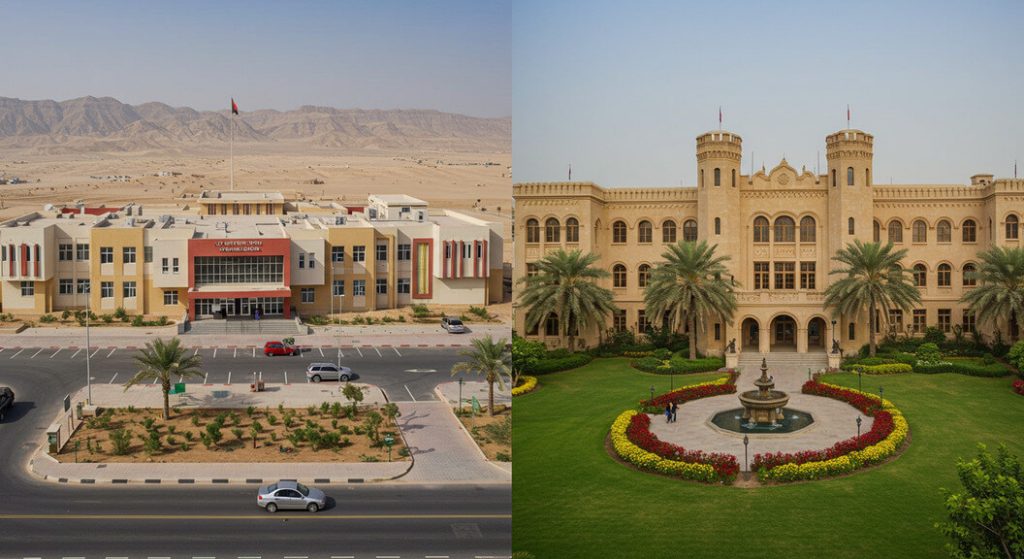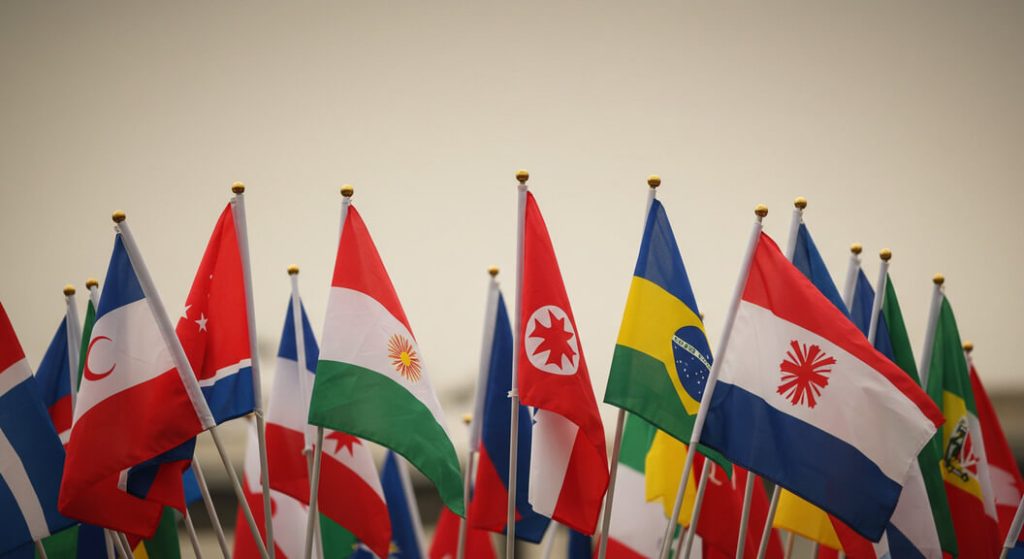Table of Contents
Public vs Private Schools in Dubai: A Comprehensive Comparison
Dubai’s educational landscape is a vibrant and diverse one, catering to a rapidly growing and increasingly international population. For families relocating to or residing in the emirate, understanding the distinctions between Public vs Private Schools in Dubai is paramount to making informed decisions about their children’s future. This report provides a comprehensive analysis of Public vs Private Schools in Dubai, examining their fundamental differences, costs, quality, standards, the role of regulatory bodies, and the presence of international schools within this dynamic educational ecosystem. By exploring these critical factors, this analysis aims to offer a clear and objective comparison of Public vs Private Schools in Dubai, supported by available research and data.
Comparing and Contrasting the Core Distinctions: Public vs Private Schools in Dubai

The fundamental differences between Public vs Private Schools in Dubai are evident across several key aspects, beginning with their regulatory frameworks. Public schools in the UAE, including Dubai, are established and administered by the government, with the primary aim of providing educational opportunities to all eligible students.1 In contrast, private schools are operated by a variety of private entities, often with a focus on achieving excellence that can be attributed to market competitiveness.1 Snippets from research indicate that the government owns and funds public schools, while private schools rely on tuition fees and are owned by individuals or organizations.2 Furthermore, while no specific authority evaluates public schools across the UAE, private schools are subject to annual inspections and ratings by bodies such as the Knowledge and Human Development Authority (KHDA) in Dubai and the Abu Dhabi Department of Education and Knowledge (ADEK).1 This difference in oversight can have implications for the perceived quality and accountability of each sector.
The medium of instruction also presents a significant divergence between Public vs Private Schools in Dubai. In public schools, Arabic serves as the primary language of instruction, with English being taught as a second language.1 Conversely, private schools typically adopt English as their main language of instruction, often offering Arabic and other languages as additional subjects.1 This linguistic distinction often aligns with the curriculum offered. Public school curricula are rooted in local culture and values, adhering to the UAE national curriculum, which places a strong emphasis on Arabic, Social Studies, and Islamic Studies.1 On the other hand, private schools tend to prioritize international educational standards, providing a diverse selection of over 14 international curricula, including the British, Indian CBSE, International Baccalaureate (IB), and American systems, along with a focus on STEM fields.1 Research clearly shows this contrast, with public schools emphasizing national identity through their curriculum and private schools offering a wide array of international educational frameworks.1
Teaching methodologies in Dubai schools are evolving, with a general trend towards more engaging and interactive approaches. These include hands-on activities, technology integration, project-based learning, inquiry-based learning, collaborative work, personalized learning strategies, and the incorporation of gamification.21 While specific comparisons of teaching methodologies directly between Public vs Private Schools in Dubai are less prevalent in the provided material, the emphasis across Dubai’s education sector appears to be on fostering critical thinking, problem-solving skills, and active student participation.21 The adoption and implementation of these methodologies may vary between individual schools in both sectors.
Student demographics also differ significantly between Public vs Private Schools in Dubai. Public schools typically have an open admission policy for UAE residents and locals, which can result in larger class sizes and a diverse student body encompassing various backgrounds and socioeconomic levels.1 In contrast, private schools may have more selective admission processes and can sometimes cater to specific socioeconomic groups due to their fee structures.1 Notably, the majority of students in Dubai are enrolled in private schools.1 Historically, public schools in the UAE have practiced gender segregation for most grade levels, although mixed-gender classes are now being introduced in the early years.2 Private schools, on the other hand, generally have mixed-gender classes throughout all grade levels.2 The trend of more national parents choosing to enroll their children in private schools has also been observed.28 Recent data highlights substantial growth in student enrollment within Dubai’s private schools, reflecting their significant role in the emirate’s education system.17
The Cost Factor: A Detailed Look at the Cost of Education in Dubai for Public vs Private Schools in Dubai
The financial implications of choosing between Public vs Private Schools in Dubai are substantial. Public schools offer free education to Emirati and GCC nationals.1 For expatriate students, the cost of education in Dubai’s public schools is significantly lower compared to private institutions, with annual fees starting at around AED 6,000.1 In stark contrast, private school fees in Dubai exhibit a wide range, from approximately AED 2,700 to upwards of AED 108,000 per year.1 Some of the most prestigious private schools can have even higher fees.34 A general observation is that tuition fees in private schools tend to increase as students progress to higher grade levels.3
Several factors contribute to this disparity in the cost of education in Dubai between Public vs Private Schools in Dubai. Public schools benefit from government subsidies for Emirati citizens.33 Private schools, however, do not receive such financial support, meaning that families bear the full cost of their children’s education.39 The level of fees in private schools can be influenced by various elements, including the school’s age and reputation, the specific curriculum offered (with curricula like IB and American AP often commanding higher fees), the extent of technology integration in teaching, the quality and range of facilities, the teacher-to-student ratio, the overall demand for the school, its location within Dubai, and any international accreditations or affiliations it may hold.38 The Knowledge and Human Development Authority (KHDA) also plays a role by regulating the annual fee increases that private schools can implement, often linking these increases to the school’s most recent inspection rating.39 Additionally, the general high cost of living in Dubai contributes to the operational expenses of schools, which can subsequently impact tuition fees.39
| School Type | Nationality | Fee Range (Annual, AED) | Key Influencing Factors |
| Public | Emirati/GCC | Free | Government subsidy |
| Public | Expatriate | ~6,000 | Government subsidy |
| Private | All Nationalities | 2,700 to 108,000+ | Curriculum, Reputation, Facilities, KHDA Rating, No subsidy |
The significant difference in the cost of education in Dubai between Public vs Private Schools in Dubai creates a clear division in accessibility for expatriate families. While public schools offer a more affordable route, the Arabic-based instruction and national curriculum may not align with the preferences or future educational plans of all expatriates, leading many to opt for the often-expensive private education sector. The KHDA’s regulation of fee increases based on school performance could act as an incentive for private schools to enhance their quality to justify higher costs. The presence of high-end private schools with substantial fees indicates a segment of the market that prioritizes premium educational experiences, potentially valuing specific curricula, extensive facilities, and specialized programs.
Assessing Educational Quality in Dubai: Public vs Private Schools in Dubai Under Scrutiny

The perception and measurement of education quality in Dubai differ between Public vs Private Schools in Dubai. Private schools are generally regarded as providing a high standard of education.1 A key indicator of this quality in the private sector is the rating system implemented by the Knowledge and Human Development Authority (KHDA), which assesses schools and assigns ratings ranging from Outstanding to Very Weak.1 Data from KHDA inspections reveals a trend of continuous improvement in Dubai’s private schools, with a significant percentage of students now attending schools rated Good or higher.44 Furthermore, students in Dubai’s private schools have demonstrated strong performance in international assessments such as the Programme for International Student Assessment (PISA) and the Trends in International Mathematics and Science Study (TIMSS).4
In contrast, public schools have historically been perceived as having lower overall quality compared to their private counterparts, although the UAE government has been actively investing in reforms to elevate standards within the public education system.27 A report from 2023 indicated that a lower percentage of public school students met expected proficiency levels in core subjects compared to international benchmarks.4 Unlike private schools, there is no equivalent public rating system conducted by an external authority like KHDA, making direct quality comparisons challenging based on readily available metrics.1 However, it’s important to note the government’s commitment to enhancing the public education sector.
The Knowledge and Human Development Authority (KHDA) plays a central role in overseeing and regulating the quality of private education in Dubai.5 Its responsibilities include conducting regular inspections of private schools, evaluating various aspects such as teaching quality, curriculum implementation, student well-being, and leadership effectiveness.5 The Dubai Schools Inspection Bureau (DSIB), part of KHDA, is specifically tasked with setting quality standards for private education services.46 Through these rigorous processes, KHDA aims to ensure accountability, promote transparency, and drive continuous improvement within the private education sector.5 While KHDA’s direct regulatory purview is over private schools, the Ministry of Education holds the responsibility for the overall education system in the UAE, including setting standards and guidelines for public schools.4
The comprehensive quality assurance framework for private schools in Dubai, spearheaded by KHDA, likely contributes to the generally higher perception of quality within this sector compared to public schools, which lack a similar public evaluation mechanism. The government’s ongoing efforts to reform public education indicate a recognition of the historical quality differences and a dedication to raising standards in the public sector. Dubai’s strong performance in international assessments, particularly within its private schools, enhances its standing as a global educational destination.
Standards and Regulations: Public School Standards Dubai Compared to Private Schools in Dubai
The regulatory landscape for Public vs Private Schools in Dubai involves distinct authorities. Public schools in Dubai operate under the jurisdiction of the UAE Ministry of Education (MoE).2 Conversely, private schools in Dubai are primarily governed by the Dubai Knowledge and Human Development Authority (KHDA).1 The KHDA, through its Dubai Schools Inspections Bureau (DSIB), establishes the quality benchmarks for private education services in the emirate.46 While KHDA is the primary regulator for private schools, these institutions must also adhere to overarching guidelines issued by the MoE, particularly concerning the teaching of mandatory subjects such as Arabic, Social Studies, and Islamic Studies.15
Public schools in Dubai adhere to the UAE national curriculum.1 This curriculum places a significant emphasis on the Arabic language, Islamic studies, and the cultural and national values of the UAE.1 English is taught as a second language and is often used as the medium for technical and scientific subjects.4 The national curriculum in public schools offers various educational streams, including General, Professional, Advanced, and Elite, designed to cater to the diverse academic interests and abilities of students.6 The Ministry of Education sets forth clear standards and desired learning outcomes for this national curriculum.7
The separation of regulatory oversight between the MoE for public schools and KHDA for private schools allows for specialized management approaches tailored to each sector’s unique characteristics and objectives. The strong focus on Arabic language and Islamic studies within the public school curriculum underscores the UAE’s commitment to its cultural and national identity, a key consideration for Emirati families. While private schools enjoy greater autonomy in their primary curricula, the MoE’s mandate over core national subjects ensures a foundational level of national education for all students in Dubai, regardless of the type of school they attend.
Identifying Excellence: Characteristics of Top Private Schools in Dubai
Top private schools in Dubai distinguish themselves from Public vs other Private Schools in Dubai through a combination of factors. They frequently offer internationally recognized curricula such as the British (including IGCSE and A-Levels), American (with Advanced Placement options), and International Baccalaureate (IB) programs.4 These schools are renowned for their high academic standards, consistently achieving excellent results and preparing their students for admission to prestigious universities around the world.4 A hallmark of top private schools is their state-of-the-art facilities, which often include advanced technology infrastructure, well-equipped science laboratories, extensive sports facilities, and dedicated centers for the arts.1 They also typically place a strong emphasis on the holistic development of students, offering a wide array of extracurricular activities encompassing sports, arts, and community service.1 The teaching staff in these leading institutions are generally highly experienced and possess strong qualifications.43 Furthermore, many top private schools foster a multicultural and inclusive learning environment, reflecting Dubai’s diverse population.1 Some are also part of larger international networks or have strong affiliations with renowned schools globally.48 A common characteristic is their high ratings from the KHDA, often achieving “Outstanding” or “Very Good” status.27
The prominence of British, American, and IB curricula among top private schools indicates a significant demand from the expatriate community in Dubai, many of whom may be planning for their children’s higher education in regions where these curricula are well-recognized. The strong focus on extracurricular activities in these schools suggests a commitment to providing a well-rounded education that extends beyond academic achievements, which may contribute to their higher tuition fees. The consistent mention of high KHDA ratings for these top-tier institutions underscores the authority’s role in quality assurance and its importance as a factor for parents seeking the best educational options.
The Role of KHDA: Overseeing and Regulating Public vs Private Schools in Dubai
The Knowledge and Human Development Authority (KHDA) holds a primary mandate for the growth and quality of private education in Dubai.5 It establishes educational benchmarks that private schools must meet to gain and maintain their accreditation.5 Through a system of regular inspections and ratings, KHDA ensures accountability and drives continuous improvement within the private school sector.5 KHDA also prioritizes student well-being and promotes innovation in teaching and learning within these institutions.5 Additionally, KHDA regulates the tuition fees charged by private schools through a framework that takes into account the school’s performance rating.5 While KHDA’s direct regulatory focus is on private education, its efforts to enhance the standards in this sector contribute to Dubai’s overall reputation as a prominent educational hub.5 The Ministry of Education, on the other hand, is the overarching authority responsible for the public education system, setting its standards and guidelines.2
KHDA’s robust regulatory role in the private education sector has likely been a significant factor in the observed improvements in quality over the years, as evidenced by the increasing number of students attending schools with high ratings. The absence of a similarly comprehensive regulatory and public reporting system for public schools in Dubai makes direct comparisons of standards and quality more challenging based on readily available data. KHDA’s emphasis on student well-being and fostering innovation in learning reflects a modern approach to education regulation, aiming to cultivate not only academic excellence but also holistic development and future-readiness in students.
The International Dimension: Understanding International Schools Dubai Within the Context of Public vs Private Schools in Dubai
International schools in Dubai primarily serve the children of expatriate families residing in the emirate.1 A defining characteristic of these schools is the wide array of international curricula they offer, including British, American, IB, French, and Indian, among others.1 This contrasts sharply with public schools, which exclusively follow the UAE national curriculum taught predominantly in Arabic.1 While the majority of private schools in Dubai are indeed international schools, the term generally refers to those offering curricula from foreign countries, catering to the diverse expat population.4 These schools often boast a multicultural student body and faculty, further distinguishing them from the more nationally focused public schools.1

The curricula offered by international schools in Dubai are significantly more diverse than those in public schools.1 While some private schools might focus on a single national curriculum, the landscape of “international schools Dubai” is characterized by a broad spectrum of educational systems. Despite their international focus, these schools are also required to incorporate core programs mandated by the UAE government, such as Islamic education, social studies, and Arabic as a second language.10 The emergence of hybrid curricula in some international schools indicates an ongoing evolution in the education sector, potentially aiming to provide a more comprehensive educational experience by blending the strengths of different systems.17
The wide variety of curricula available in international schools in Dubai directly addresses the diverse educational backgrounds and future aspirations of the emirate’s large expatriate community. The government’s requirement for these schools to also teach national subjects demonstrates a commitment to preserving UAE identity and values within an internationalized educational environment. The development of hybrid curricula suggests an adaptive approach by schools to meet evolving educational needs and preferences.
Frequently Asked Questions (FAQs) about Public vs Private Schools in Dubai
FAQ 1: What are the key differences between Public vs Private Schools in Dubai?
Public vs Private Schools in Dubai differ significantly in several fundamental aspects. Public schools in Dubai are government-run and primarily cater to Emirati and GCC nationals, offering free education to them and charging a nominal fee for expatriates. The main language of instruction in Public vs Private Schools in Dubai is Arabic, with a strong emphasis on the UAE national curriculum, which includes Arabic, Social Studies, and Islamic Studies. Class sizes in Public vs Private Schools in Dubai tend to be larger. In contrast, private schools in Dubai are operated by private organizations and charge tuition fees that can vary widely. The primary language of instruction in most Private Schools in Dubai is English, and they offer a diverse range of international curricula, such as British, American, and IB. Class sizes in Private Schools in Dubai are generally smaller, and these schools are subject to regular inspections and ratings by the Dubai Knowledge and Human Development Authority (KHDA), which assesses the quality of education. Facilities and extracurricular activities also tend to be more extensive in Private Schools in Dubai compared to Public Schools in Dubai.
FAQ 2: What is the Cost of education Dubai for Public vs Private Schools in Dubai, and how does the Dubai school fees comparison look?
The Cost of education Dubai varies greatly between Public vs Private Schools in Dubai. For Emirati citizens, education in Dubai’s public schools is free, while expatriates pay a relatively low annual fee of around AED 6,000. This makes the Cost of education Dubai in the public sector highly affordable for expats. However, the Cost of education Dubai in private schools is significantly higher, with annual fees ranging from under AED 3,000 to over AED 100,000, depending on the school and grade level. The Dubai school fees comparison reveals that premium international schools with renowned curricula like IB or American AP tend to have the highest fees. Mid-range private schools offer a more moderate Cost of education Dubai, while some private schools offer more affordable options while still providing international curricula. The Dubai school fees comparison also shows that fees generally increase with each grade level in private schools.
FAQ 3: What is the Education quality Dubai like in Public vs Private Schools in Dubai, and which are considered the Top private schools Dubai in terms of Public school standards Dubai?
The Education quality Dubai is generally perceived to be higher in private schools compared to public schools, largely due to the rigorous oversight and rating system provided by the KHDA for private institutions. KHDA ratings (Outstanding, Very Good, Good, etc.) are a key indicator of Education quality Dubai in the private sector. Dubai’s private schools also perform well in international academic assessments. While the government is working to improve the Education quality Dubai in public schools, historical data suggests a gap. Top private schools Dubai often include institutions like GEMS Dubai American Academy, Dubai College, Repton School Dubai, and Swiss International Scientific School, known for their high academic standards, diverse international curricula, and excellent facilities. Public school standards Dubai are based on the UAE national curriculum, which emphasizes Arabic language and Islamic studies, overseen by the Ministry of Education. While these standards serve the national educational goals, they differ from the international standards and curricula offered by the Top private schools Dubai.
Conclusion: Making Informed Choices Between Public vs Private Schools in Dubai
Choosing between Public vs Private Schools in Dubai is a significant decision for families, with numerous factors to consider. The fundamental differences in regulatory oversight, language of instruction, curriculum, and cost create distinct educational environments. Public schools offer an affordable option, particularly for expatriates, with a curriculum rooted in UAE culture and values. Private schools, while often more expensive, provide a wide array of international curricula and are subject to rigorous quality assurance measures. Ultimately, the optimal choice depends on a family’s individual needs, priorities, and the specific academic and developmental requirements of their children. Factors such as cost, desired curriculum, language of instruction, cultural alignment, and perceived quality should all be carefully weighed. Further research and direct engagement with individual schools are crucial steps in making an informed decision that best suits the family’s circumstances within the diverse educational landscape of Dubai.
Ensuring Legal Precision with MSK Legal Translation Dubai
Understanding the nuances between Public vs Private Schools in Dubai is crucial for families relocating to or residing in the UAE. Similarly, ensuring accurate and legally sound documentation is essential for various aspects of life in Dubai. For individuals and organizations requiring precise and reliable translation services for legal documents, educational certificates, or other important paperwork, consider the expertise of MSK Legal Translation Dubai, a unique legal translation in Dubai. Whether it’s translating school transcripts for admissions, legal contracts for residency, or other vital documents, MSK Legal Translation Dubai offers the specialized services needed to navigate the legal and administrative processes in Dubai with confidence.
For more details, go to Dubai Education page..
You can find relevant data within Dubai by browsing Staying Connected in Dubai: SIM Cards, Wi-Fi, and eSIMs
Works cited
- Private vs Public School in the UAE: Fees, Curriculum & More, accessed April 7, 2025, https://www.propertyfinder.ae/blog/private-vs-public-school-uae/
- Difference between Public and Private schools UAE Schools – YouTube, accessed April 7, 2025, https://m.youtube.com/watch?v=csg9APFPFFw&pp=ygUaI2dvdmVybWVudHZzcHJpdmF0ZXNjaG9vbHM%3D
- International Schools and the Education System in the UAE – InterNations, accessed April 7, 2025, https://www.internations.org/uae-expats/guide/education
- The Education System in UAE Explained – TutorChase, accessed April 7, 2025, https://www.tutorchase.com/blog/the-education-system-in-the-uae-explained
- KHDA: Strengthening Dubai’s Educational System – AEC Overseas, accessed April 7, 2025, https://www.aecoverseas.com/blog/khda-role-dubai-education-system/
- All About Public Schools in Dubai – Property Finder, accessed April 7, 2025, https://www.propertyfinder.ae/blog/all-about-public-schools-in-dubai/
- American Curriculum – ADEK, accessed April 7, 2025, https://www.adek.gov.ae/en/Education-System/Private-Schools/Curriculum/United-Arab-Emirates—MOE-Curriculum
- The education system in the UAE | Expatica, accessed April 7, 2025, https://www.expatica.com/ae/education/children-education/education-system-in-the-united-arab-emirates-71237/
- Stages and streams of school education | The Official Portal of the UAE Government, accessed April 7, 2025, https://u.ae/en/information-and-services/education/school-education-k-12/stages-and-streams-of-school-education
- Curricula and language of instruction | The Official Portal of the UAE …, accessed April 7, 2025, https://u.ae/en/information-and-services/education/school-education-k-12/curricula-and-language-of-instruction-
- Guide To The International School Systems In Dubai | Aralia Education, accessed April 7, 2025, https://www.aralia.com/helpful-information/guide-to-the-international-school-systems-in-dubai/
- DIPS Curriculum – Dubai International Private School, accessed April 7, 2025, https://www.dips-alquoz.ae/dips-curriculum
- Dubai, UAE – timss 2023, accessed April 7, 2025, https://timss2023.org/wp-content/uploads/2024/10/Dubai-UAE.pdf
- DUBAI GEM PRIVATE SCHOOL STRIVE FOR EXCELLENCE Curriculum Policy – 2024-2025, accessed April 7, 2025, https://dubaigem.ae/wp-content/uploads/2024/07/Curriculum-Policy-May24.pdf
- Mandatory Curriculum Requirements for Private Schools in Dubai – KHDA, accessed April 7, 2025, https://web.khda.gov.ae/getattachment/Resources/Forms/Curriculum_Requirements_for_Private_Schools_in_Dubai_Eng.pdf.aspx?lang=en-GB
- Education in Dubai – Wikipedia, accessed April 7, 2025, https://en.wikipedia.org/wiki/Education_in_Dubai
- Dubai’s private school sector records 6% enrolment growth in 2024-25 academic year, accessed April 7, 2025, https://www.wam.ae/en/article/bhlq49m-dubai%E2%80%99s-private-school-sector-records-enrolment
- Dubai Plans 100 New Private Schools by 2033: Student Numbers Rise 6% – JobXDubai, accessed April 7, 2025, https://blog.jobxdubai.com/2025/01/09/dubai-private-schools-expansion-2025-student-growth/
- Dubai: Private schools report 6% rise in enrolment for 2024-25 academic year, accessed April 7, 2025, https://gulfbusiness.com/dubai-private-schools-report-6-rise-in-enrolment/
- Dubai private schools see 6% enrollment growth, accessed April 7, 2025, https://www.travelsdubai.com/09-Jan-2025/dubai-private-schools-see-6-percent-enrollment-growth
- Dubai’s Education Innovators: Schools Implementing New Teaching Methods, accessed April 7, 2025, https://focus.hidubai.com/dubais-education-innovators-schools-implementing-new-teaching-methods/
- Teaching In Dubai: Classroom Tour – YouTube, accessed April 7, 2025, https://www.youtube.com/watch?v=v1-dJLXgj8k
- Top 8 Teaching Methods that Make Abu Dhabi Indian Schools the Best – GIIS Abu Dhabi, accessed April 7, 2025, https://globalindianschool.org/abudhabi/blog-details/top-8-teaching-methods-that-make-abu-dhabi-indian-schools-the-best
- Engaging Teaching Strategies for UAE Schools in 2024 – Smarter Surfaces, accessed April 7, 2025, https://smartersurfaces.ae/blog/teaching-strategies-for-uae-schools/
- What are the Best Teaching Methods Adopted by Dubai International Schools for their Students – GIIS Dubai, accessed April 7, 2025, https://globalindianschool.org/dubai/blog-details/what-are-the-best-teaching-methods-adopted-by-dubai-international-schools-for-their-students
- Understanding Personalised Learning Approaches in UAE Schools – GEMS Education, accessed April 7, 2025, https://www.gemseducation.com/en/News-and-Events/Blogs/Personalised-learning-approaches-in-uae-schools
- Education in Dubai: A guide to the schooling system, accessed April 7, 2025, https://www.aetnainternational.com/en/health-wellness/destination-guides/expat-guide-to-dubai/education-in-dubai.html
- Key Education Statistics – For Dubai – KHDA, accessed April 7, 2025, https://web.khda.gov.ae/getattachment/2f8e3e9c-274c-42bc-b8da-cf7efc358db2/Key-EDU-Stats-Sheet_english.pdf
- Dubai private school enrolment increases 6 per cent as emirate’s population continues to rise | The National, accessed April 7, 2025, https://www.thenationalnews.com/news/uae/2025/01/09/dubai-private-school-enrollment-increases-6-per-cent-as-emirates-population-continues-to-rise/
- KHDA’s data & statistics, accessed April 7, 2025, https://web.khda.gov.ae/en/resources/khda%E2%80%99s-data-statistics
- www.propertyfinder.ae, accessed April 7, 2025, https://www.propertyfinder.ae/blog/private-vs-public-school-uae/#:~:text=Public%20schools%20offer%20free%20education,AED%20108%2C000%20or%20more%20annually.
- School fees | The Official Portal of the UAE Government, accessed April 7, 2025, https://u.ae/en/information-and-services/education/school-education-k-12/school-fees
- List of Schools in Dubai With Fees, accessed April 7, 2025, https://allfordubai.com/list-of-schools-in-dubai-with-fees/
- Most Expensive Schools in Dubai: Fees & Offerings – AEC Overseas, accessed April 7, 2025, https://www.aecoverseas.com/blog/the-5-most-expensive-schools-dubai-tuition-fees-offerings/
- How do these Dubai school fees compare to your home country? #dubai #dubailife #dubaischools – YouTube, accessed April 7, 2025, https://www.youtube.com/watch?v=Y7JHByms7PA
- Tuition Fees | Dubai British School Emirates Hill, accessed April 7, 2025, https://www.dubaibritishschool.ae/admissions/fees/
- Tuition & Fees | American School of Dubai, accessed April 7, 2025, https://www.asdubai.org/admissions/tuition-fees
- Dubai School Fees: A Guide to International School Costs – ED-SG, accessed April 7, 2025, https://www.ed-sg.com/blog/admissions/dubai-international-school-fees/
- Why Are Dubai’s School Fees So High? – Betterhomes, accessed April 7, 2025, https://www.bhomes.com/en/blog/betterliving/understanding-the-high-costs-of-schools-in-dubai
- Understanding the High Costs of Schools in Dubai – Royal Oasis Real Estate Brokers, accessed April 7, 2025, https://www.royaloasis.co.ae/blog-detail/59/understanding-the-high-costs-of-schools-in-dubai
- Moving to Dubai? Choosing a School: Fees, Curriculum, Available Places & More, accessed April 7, 2025, https://whichschooladvisor.com/uk/guides/moving-to-dubai-choosing-a-school-fees-curriculum-available-places-more
- Knowledge and Human Development Authority – Wikipedia, accessed April 7, 2025, https://en.wikipedia.org/wiki/Knowledge_and_Human_Development_Authority
- Dubai’s Pursuit of Educational Excellence: Ensuring Quality … – QAHE, accessed April 7, 2025, https://www.qahe.org/article/dubais-pursuit-of-educational-excellence-ensuring-quality-education-at-all-levels/
- Dubai’s Education Quality Soars: 81% of Students Now in Top-Rated Schools – RCOR, accessed April 7, 2025, https://www.rcor.co/post/dubai-s-education-quality-soars-81-of-students-now-in-top-rated-schools
- 81% of Dubai students attend private schools rated Good or … – KHDA, accessed April 7, 2025, https://web.khda.gov.ae/en/About-Us/News/2024/81-of-Dubai-students-attend-private-schools-rated
- Regulatory authorities of K-12 education | The Official Portal of the …, accessed April 7, 2025, https://u.ae/en/information-and-services/education/school-education-k-12/regulatory-authorities-of-k-12-education
- KHDA – Welcome to the Knowledge and Human Development …, accessed April 7, 2025, https://www.khda.gov.ae/en/
- Best schools in Dubai | The Good Schools Guide, accessed April 7, 2025, https://www.goodschoolsguide.co.uk/international/uae/dubai/best-schools
- 24 Best Schools in Dubai for Top-Quality Education, accessed April 7, 2025, https://www.luxuryproperty.com/blog/best-schools-in-dubai
- The Best Private Schools in Dubai 2024 – Property Finder, accessed April 7, 2025, https://www.propertyfinder.ae/blog/private-schools-in-dubai/
- Top Schools in Dubai : A Guide for Expats – Allocation Assist, accessed April 7, 2025, https://www.allocationassist.com/top-schools-in-dubai-a-guide-for-expat-families/
- The best private schools in the Middle East – Spear’s Magazine, accessed April 7, 2025, https://spearswms.com/education/the-best-private-schools-in-the-middle-east/
- Top schools for expats in Dubai: Here’s a ready reckoner of curricula, locality, and fees, accessed April 7, 2025, https://gulfbusiness.com/top-schools-expats-dubai-curricula-locality-fees/
- List of every International School in Dubai-Sharjah-Ajman, accessed April 7, 2025, https://www.international-schools-database.com/in/dubai


Leave a Reply